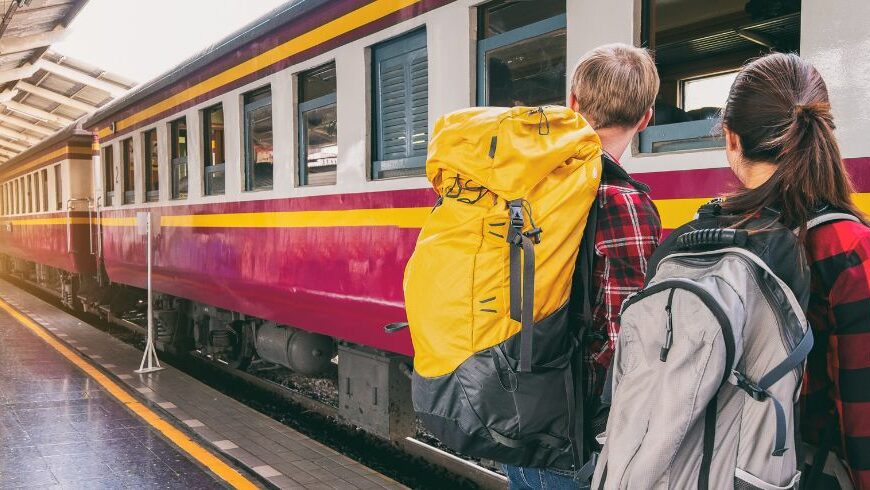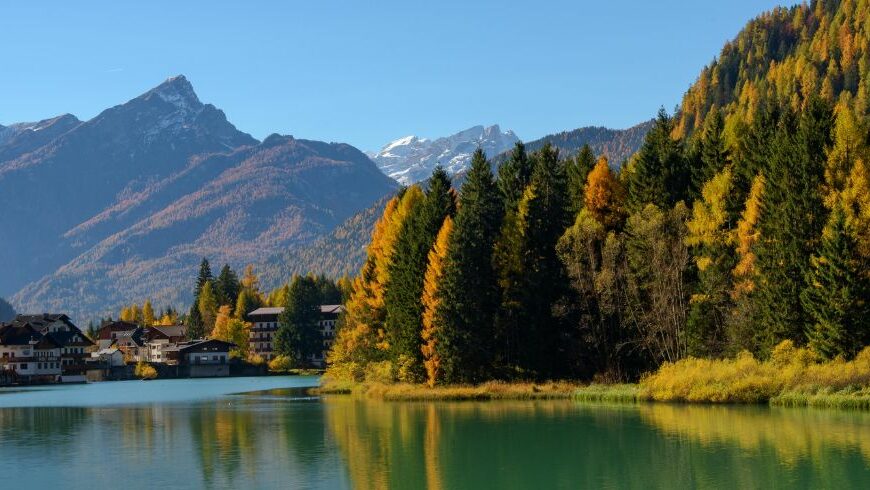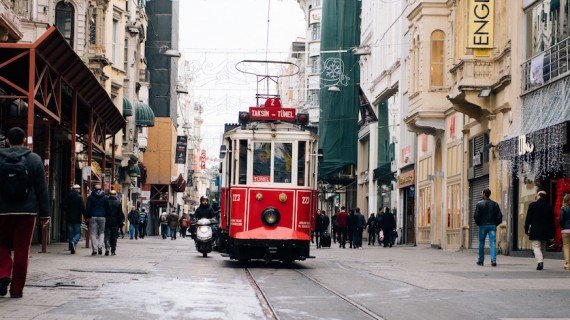Are you wandering how to approach sustainable travelling? Here you have 10 tips to become an expert!
Travelling is like dreaming. This famous quote by Edgar Allan Poe refers to what human beings love most in their leisure time: adventure. We travel to fulfil our dreams of discovering realities and worlds that are far removed from our own and also to be able to discover ourselves.
However, our desire must be able to respect the environment and respond to its needs. On too many occasions we have tended to be heedless towards nature, causing catastrophes such as the reduction of habitats.

As tourists, we must therefore be more careful and attentive: the keyword is sustainability.
Here are 10 tips on how to limit a negative impact on the natural world through sustainable travelling by being environmentally friendly and respectful:
1. Use less impactful means of transport like train
We have to consider that air transportation has a strong global impact, so it is crucial not to be fooled by low-cost flight offers. Similarly, private vehicles are sources of gas emissions and must be avoided.
The best option for sustainable travelling would be to utilise rail transportation, which in an equally short time covers distant routes in a more sustainable way.

2. Use a thermal bottle
Just think about all the times you are walking under a burning sun and your only wish is to drink fresh water. It may sound banal, but a thermal bottle is an optimal solution.
It implies the reduction of plastic bottles that are difficult to dispose of and it may turn out to be extremely handy when you are in need of rest.
Additionally, since they are refillable, you will only have to ask for tap water or to find a source in the surroundings.
3. Opt for sustainable accommodations
The hotel industry has been moving towards the most eco-friendly solutions during the last decade, to guarantee guests a pleasant and sustainable stay. Find them all on Ecobnb!
Some of the approaches include energy efficiency, recycling programs, and the complete elimination of disposable plastic products.
These facilities also provide treatments and activities that enable tourists to connect with nature and not harm it in any way.

4. Visit nearby places
In the past years, holidaymakers have tended to prefer international or transcontinental destinations in pursuit of a glimpse of distinct sceneries.
Yet, we often seem to ignore the fact that the realities that surround us carry unexplored treasures and beauties.
The selection of locations that are proximate to your residence helps to minimise carbon emissions and benefits the smallest businesses.
5. Respect nature
Not disturbing the adjacent flora and fauna is fundamental since it may cause the disruption of an ecosystem.
You should avoid removing natural artefacts, such as shells or sand from the beaches since they not only are charming ornaments, but they are also functional to the biosystem.

6. Support local business
When you go to a restaurant, try to choose local farms and venues that serve in-season products; these are the epitome of sustainable travelling.
To the same degree, support local artisans and producers that make use of raw materials within reach.
In this way, you will be able to reduce the carbon footprint of imported goods.
7. Prioritise non-motorized modes of transportation
You can opt for cycling and walking for urban mobility. Many are the destinations that can entirely be discovered by foot, both in cities and in nature.
If your itinerary includes distant stops, then go for a bike ride. Try challenging your fellow travellers, the first to arrive will be rewarded with a tasty local delicacy!

8. Pack sustainable necessities
Being more mindful of nature does not require any grand gestures, all we need to do is to be careful about the items we pack.
Select a wooden toothbrush in lieu of plastic alternatives, solid shampoos are not packed in plastic and choose reusable make-up remover pads instead of disposable wipes.

9. Choose eco-friendly tourist attractions
Zoos and aquariums are notorious for exploiting animals. Since children tend to love animals, you can choose to go to interactive farms where farmers who take care of the garden and the animals can entertain youngsters.
Similarly, daily ski trips or speedboat excursions can be replaced with museums and cinemas.
10. Opt for undiscovered destinations
The phenomenon of overtourism is highly detrimental to the ecosystems established in an area; it may lead to a reduction of natural resources and deterioration of habitats.
Many tourists also find it extremely irritating to walk in overcrowded streets and not to be able to admire the cultural heritage of a location.
Planning a trip in less crowded and sought-after places is more relaxing and allows you to save money.

Bonus tip: balance your emissions
When you do not want to or cannot forego a long plane flight due to a significant distance, you can think of a way to balance your emissions.
An effortless and inexpensive method is to plant a tree remotely. You can do it on several websites and you also have the chance to choose what kind of tree you prefer and name it.

Cover image by Arthon meekodong, CanvaPRO




